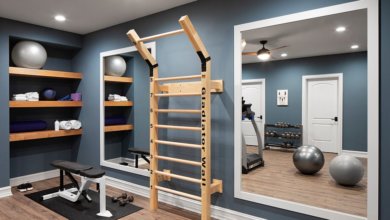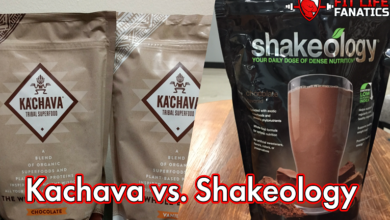Stopped Working Out For a Year: Here Is What Happened
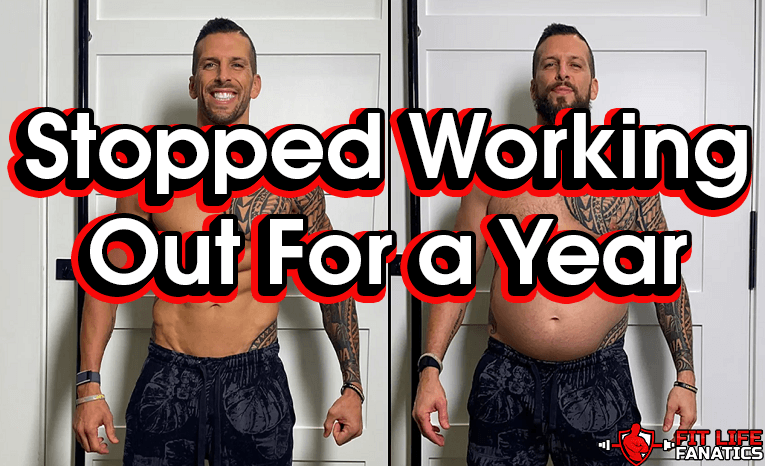
As fitness buffs, we all hate taking a break from lifting. A week or so later, your muscles seem deflated. The pump's gone. Slowly but surely, the motivation wanes. You start to wonder whether the muscle's turning into fat, as the internet claims.
Relax. Your muscle tissue might not be turning into fat overnight. That said, there's a good possibility that you will lose a fair bit of that muscle tissue if your tiny workout break starts extending for much longer than intended.
I experienced this first hand when I had to take an unplanned 12-month hiatus from fitness thanks to an ACL tear. Normally, ACL tears heal in weeks. But as luck would have had it, mine took well over a year.
During this phase, I experienced everything that I always dreaded. That's what I am going to share with you today.
What happens when you stop working out for a year?

A lot happens. But if I could narrow it down, I'd like to highlight three of the most important aspects of your fitness that will be most affected.
Cardiovascular Strength
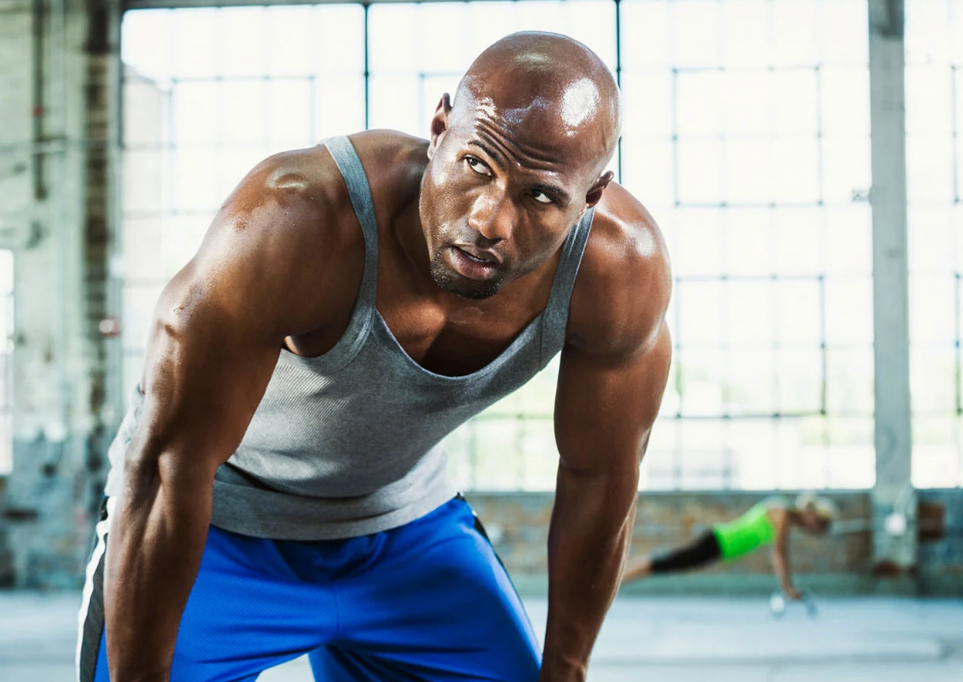
Call it Cardiovascular strength or VO2 Max output, the fitness level declines dramatically in just weeks. If you were able to complete a 5K in 22-minutes, that time will creep up fast the longer you are detrained. When I resumed my treadmill runs after a year, it took a blistering 39-minutes for a 5K.
Just how long you should run on the treadmill varies since everyone is different, but if you are coming back from such a long break, don't be surprised if you take longer than normal.
My average heart rate was more than 8 beats per minute slower as well. It was clear that my lack of cardio exercise had taken its toll.
Muscular size, strength & endurance

Your muscular strength and endurance will drop a lot slower than your cardio. But drop it will. A few months of detraining reduces the size of your muscle fibers, decreases the ATP stores in your muscles and increases plasma lactate levels.
What this does, is reduce your ability to produce force. The result? You can't push, pull or lift as much weight as you used to be able to. Those T-bar rows, renegade rows and similar exercises will feel a whole lot more grueling and draining than ever.
Fat Gain

Muscle tissue burns more calories than fat tissue. So when you stop working out, your body tries to reallocate the calories towards other activities, which are non-existent. Then it decides to hoard that energy by converting it into fat and piling it up, until the next time you get to workout and burn it up. But that need not worry you, there are enough cardio machines for weight loss out there to get you back in shape.
And that's the reason why you see your body fat levels increasing when your caloric intake remains unchanged.
How long until you lose muscle from not working out?

Anecdotally, it's about 8-weeks. After 8-weeks or so, I started to experience a significant amount of muscle loss. And by the end of the third month, it was quite palpable.
But based on science, it can be 12-weeks or even more before you start to lose actual muscle tissue.
How long does it take to gain back your former physique & strength after stopping working out for a year?
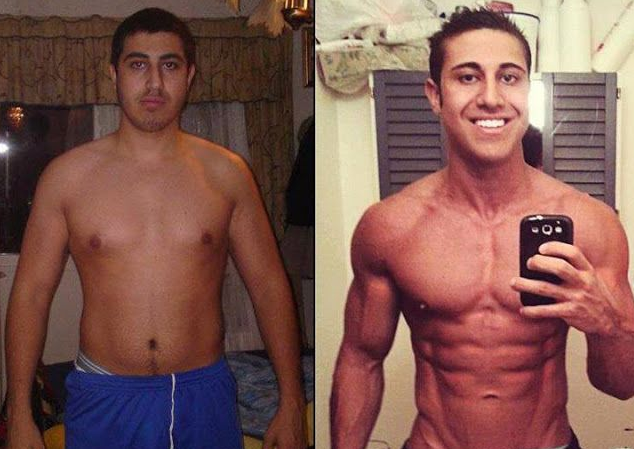
That's a very broad question with several factors determining the outcome. If you are 60-years of age and have never performed resistance training, it will likely take 2 to 3 years post your return before you are back to your former strength levels.
But if you are in the 18-to-35 demographic with a fair bit of training, I can tell you that returning to your former levels of strength, endurance and aerobic capacity can happen in as little as a few months. That is if you follow a progressive training program with astute attention to your nutrition and recovery.
That's because of Muscle memory.
What is muscle memory?
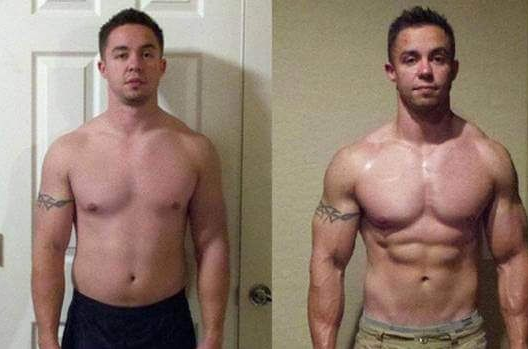
Your muscles are composed of numerous motor units, which are activated during contraction. A motor unit consists of a single alpha motor neuron and all of the muscle fibers that it innervates. Motor neurons release the neurotransmitter, acetylcholine at the neuromuscular junction to stimulate muscle contraction.
Different muscles have varied, but small motor units. That means they are activated depending on the force required. For example, if you perform a bicep curl or the cambered bar curl, the motor unit consisting of a single alpha neuron and all of the muscle fibers it innervates will contract to produce a low force.
When you train a muscle, it causes the motor neurons to develop more receptor sites for acetylcholine. The end result is a greater number of motor units made available. This is somehow stored into the nuclei, which allows the body to bounce back faster after a break. This is what's called muscle memory.
When you stop working out for 6 months or longer as I did, the neurons that were recruited at the beginning of your workout regress in size. But it's still present. It never ceases to exist. It will take a number of weeks before they are able to fire at their former frequencies and therefore produce force at their former capacities.
Once that occurs, you'll be back to your old strength levels and maybe even stronger than before.
How to slowly ease back to workout routine after workout break for a year?

The biggest mistake that people make when they resume their workouts is jumping head over heels into an aggressive program and taking on challenges like doing, 1000 push-ups a day, 100 kettlebell swings a day or the 500 crunches a day. They feel so anxious to build back the muscle that they've lost, that they force themselves to do too much too quickly.
I highly recommend that you ease back into your routine. That way, you can ensure that you are giving your body a chance to recover after each workout. Then you can avoid future joint, tendon and muscle injuries by not asking too much of your body too soon.
Things to keep in mind while restarting your exercise routine after a year

Here are some thumb rules that I used.
Shifted to a workout program for moderately trained athletes

With 8-years of training under my belt and having expertise in CrossFit and Tactical Barbell training , it was tough as nails for me to suddenly shift to a program that less trained athletes generally follow.
But with a significant loss in strength, my coach advised me that it would be a safer program with less risk of injury. So I shifted to a workout routine that's generally recommended for moderately trained athletes.
Took More Rest Days

This is a good way of giving your body more time to recover from fatigue. You have to keep reminding yourself that you do not have the physical reserves, or the CNS system endurance to go at it like you used to when you were training. Avoid aggressive workout routines like training shoulders after chest day, doing squatting and benching on the same day, or taking on excessively draining workouts back to back.
Focused on Nutrition

To heal and recover, your body needs the right fuel. So I started to pay much greater attention to my post-workout nutrition. Rather than just gulping down a creatine-free protein powder shake after my workout, I started to dial down my micronutrients, electrolytes and hormone levels. That's not to say that protein shakes are not advisable, I still take my breakfast meal replacement shake, and yes, sometimes I use protein shakes without working out.
Watched for signs

More often than not, your body signals to you when you are stretching it more than you should. A niggle here, acute pain there, lack of mobility, range of motion is limited. Watch for those signs and take remedial action. I suffered the back injury initially because I pushed hard my body for roman chair sit ups when I should have paused and taken a few steps back. This time, I didn't take a chance.
Used Supplementation when required

If your nutrition is on point, you may not require supplements. But when you are resuming workouts after such a long break, there's a distinct possibility that it won't be enough to recover from the vigorous workouts. I used supplements, both whey-free protein powders and even protein pills judiciously as and when required.
What should I do the next time I have to take a break

Breaks from fitness can be planned or unplanned. If it's an unplanned and forced break like mine, due to an injury, I highly recommend that you work with your coach and your PT to create a plan that you can follow without aggravating the injury.
If it's a planned break, that you'd taken then you can actually prevent most of the muscle and strength loss that happens due to workout breaks. There's no secret sauce for it.
All that you need to do, is try not to stop exercising entirely. Let me explain.
- Reduce Intensity and Duration - Maybe you cannot go to the gym for your usual intense workouts. Or maybe you cannot grind it out on your cardio machine at all. So just reduce the intensity, duration and frequency of your workouts. So instead of going to the gym for an hour of workout 6-days a week, you can go just once every 3 days. Or maybe instead of cycling 10km a day, you can cycle only 5km a day for the next few weeks. But don't stop it completely.
- Any activity is better than none - The problem with complete breaks from exercise is that your physical and mental fitness will take a hit. So it's better to be active rather than inactive for the planned break. It doesn't have to be as hardcore as it normally is. But even if you have a home gym setup where you can do some light workouts (whether it's some shrimp squats, australian pull ups, or dumbbell floor presses), you can still feel better than if you stopped working out altogether.
- Don't let your diet slip - Nutrition and physical fitness usually go hand in hand. When you are regularly exercising, you are bound to take in the right amount of food that your body needs for energy and recovery too. So when you have a workout break, don't let your dietary habits slip. In fact, you may need to reevaluate your diet because you are not burning as many calories as you once did.
FAQS about stopped working out for a year

Haven't found the answer to your question yet? Not to worry, below are some more answers to your concerns.
Q. How long does it take to lose muscle if you stop working out?
A. There are theories galore that claim different numbers for the time that it takes to lose muscle when you stop exercising. There's one study for instance, that claims that you can lose up to 2-pounds of muscle in just one-week of inactivity. I'd take that with a pinch of salt though.
You'll lose a fair bit of muscle glycogen and water, which will make your muscles look flat. But if you've been training for years, it will take much longer to lose muscle tissue. 12-16 weeks is generally the time when you will lose actual muscle mass.
Q. How long does muscle memory last?
A. Just like everything else fitness and science-related, there's no conclusive answer for this. There are some who say that muscle memory can last for up to 15 years. There are others who say that you lose it in mere months. Again, I'd take the latter with a large pinch of salt.
Any bodybuilder who comes back from a break will regain his muscle mass within months. It may not be as fast as they'd gained it, but if they keep working out regularly, it will come back. Much sooner than someone who's never trained might be able to build it. Again, I can't say for sure how long muscle memory lasts. But the key is regularity.
Q. How long does it take for your body to get out of shape?
A. Depends on a multitude of factors. Your age, current fitness levels, body conditioning, hormone levels and training experience are some of them. Even if you are a seasoned athlete, you will in all likelihood get out of shape in 6-8 months.
Q. How long does it take for muscles to come back?
A. Same answer as above. Only this time, the time taken for the muscles to come back will be much less if you are an experienced lifter and will be much longer if you lack muscle memory.
Q. Do Muscles turn to fat when you stop working out?
A. Muscle fiber and fat are two different types of cells. If you stop working out, the muscle fiber itself will not turn to fat. But your overall body composition may change. The size of your myosin and actin fibers will reduce.
You will carry less intracellular fluid, which in turn will make you look smaller. To add to this, you might gain fat because any surplus calories you consume will now be stored as fat since you are no longer burning it for fuel. If you combine all of these factors, it does look like your muscles converted to fat. But this is what happens in reality.
Q. If I stop exercising will I gain weight?
A. Weight gain is about calories in vs. calories out. As long as you can control your caloric intake and alter it to adjust to the new energy expenditure, you shouldn't gain much. But if you continue to eat in a caloric surplus, as you did during a fitness program, then you will gain weight.
Related Readings:
- Neutral Grip Pull Ups – Everything You Need to Know
- Underhand Dumbbell Row: How To Do It, Muscles Worked, Alternative Exercises
- Leg Extension Alternatives – Best Substitute Exercises
- Does Creatine Make You Gain Weight? If So, How Much Weight? Is It Fat?
- Best Preworkouts Without Beta Alanine - No Itch & No Flushing
- GymShark Review: Are They Good & Worth It? Everything You Need to Know
Resources:
Ben Mayz
Hi there! I'm Ben, main author and chief editor at Fitlifefanatics.com. I have been obsessed with Strength Training and Fitness for 18 years now.
My passion for living a happy fit lifestyle is what made me realize that fitness is what I wanted for my future.
I went on to earn my Masters in Sports Training & Biomechanics.
My passion for Strength training & fitness and my love of helping others is what made me start Fitlifefanatics.
Here, myself, and a team of specialist aim to provide the most accurate, and actionable information possible in hopes to help foster the fitness community forward.
You can learn more about Fitlifefanatics on our About Page

